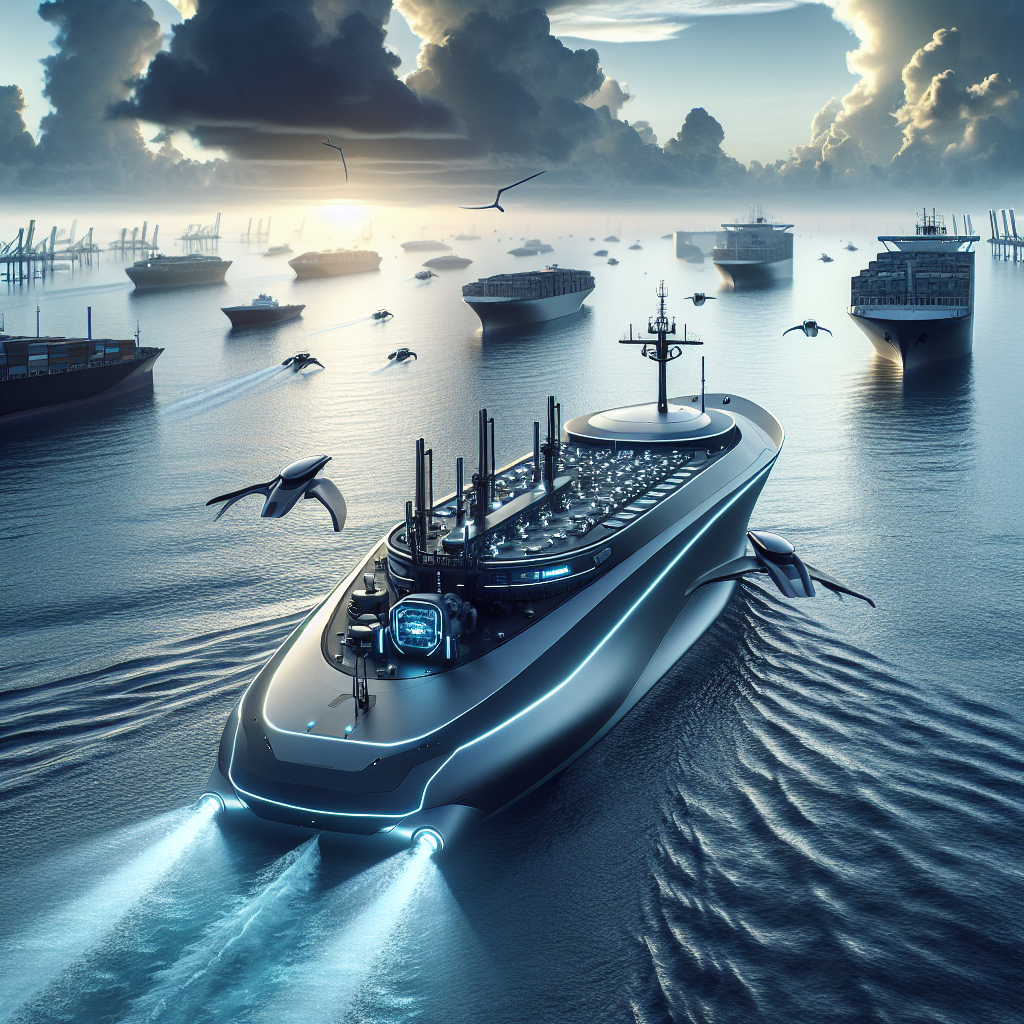The Dawn of Maritime Autonomy
The shipping industry is on the brink of a technological revolution with the emergence of autonomous ships. These vessels, equipped with advanced AI systems and sophisticated sensors, are poised to transform maritime transportation as we know it. This comprehensive analysis explores the far-reaching implications of autonomous shipping technology on the global maritime sector.
Understanding Autonomous Ships
Autonomous ships, also known as maritime autonomous surface ships (MASS), are vessels capable of operating with varying degrees of independence from human interaction. These ships utilize a combination of:
- Artificial Intelligence (AI) and Machine Learning
- Advanced sensor systems
- GPS and satellite navigation
- Computer vision technology
- Real-time weather monitoring systems
Key Benefits of Autonomous Shipping
Enhanced Safety
Human error accounts for approximately 75-96% of maritime accidents. Autonomous ships can significantly reduce these incidents through:
- Continuous 360-degree monitoring
- Faster reaction times to potential hazards
- Elimination of fatigue-related errors
- Consistent decision-making processes
Cost Efficiency
The implementation of autonomous technology offers substantial cost savings through:
- Reduced crew-related expenses
- Optimized fuel consumption
- Lower insurance premiums
- Decreased human error-related costs
Environmental Benefits
Autonomous ships contribute to environmental sustainability by:
- Reducing fuel consumption through optimal routing
- Minimizing emissions through efficient operations
- Decreasing the risk of environmental accidents
- Supporting the integration of alternative fuels
Challenges and Considerations
Technical Challenges
The development and implementation of autonomous shipping face several technical hurdles:
- Ensuring reliable connectivity at sea
- Developing robust cybersecurity measures
- Creating accurate sensor systems for all weather conditions
- Establishing reliable emergency protocols
Regulatory Framework
The maritime industry must address significant regulatory challenges:
- Developing international regulations for autonomous vessels
- Establishing liability frameworks
- Creating new insurance models
- Defining certification requirements
Workforce Impact
The transition to autonomous shipping will significantly impact maritime employment:
- Creation of new technical roles
- Shift in skill requirements
- Need for retraining programs
- Evolution of maritime education
Current Developments and Future Prospects
Industry Pioneers
Several companies and countries are leading the autonomous shipping revolution:
- Rolls-Royce Marine’s autonomous vessel projects
- Yara Birkeland – the world’s first autonomous container ship
- Norwegian autonomous ferry developments
- Japanese autonomous cargo ship initiatives
Future Timeline
The implementation of autonomous shipping is expected to follow a gradual progression:
- Short-range autonomous vessels (2020-2025)
- Coastal autonomous shipping (2025-2030)
- Ocean-going autonomous vessels (2030-2035)
- Full integration of autonomous shipping (2035+)
Economic Impact on the Shipping Industry
Market Transformation
The introduction of autonomous ships is reshaping the maritime economy through:
- New business models and opportunities
- Changed competitive dynamics
- Increased efficiency in global trade
- Reformed maritime services sector
Investment Landscape
The autonomous shipping sector is attracting significant investment in:
- Technology development
- Infrastructure modernization
- Training and education
- Research and development
Integration with Existing Infrastructure
Port Adaptation
Ports worldwide are preparing for autonomous vessels by:
- Implementing smart port technologies
- Developing automated loading/unloading systems
- Creating dedicated autonomous vessel berths
- Upgrading communication infrastructure
Supply Chain Integration
Autonomous shipping will transform the global supply chain through:
- Enhanced predictability
- Improved cargo tracking
- Seamless multimodal integration
- Real-time logistics management
Conclusion
The impact of autonomous ships on the shipping industry is profound and far-reaching. While challenges remain, the benefits of increased safety, efficiency, and environmental sustainability make autonomous shipping an inevitable evolution in maritime transportation. As technology continues to advance and regulatory frameworks develop, the industry must prepare for this transformative change that will reshape global maritime commerce.
Looking Ahead
The success of autonomous shipping will depend on:
- Continued technological advancement
- International cooperation and standardization
- Industry-wide adaptation and acceptance
- Effective management of the transition period
As the maritime industry embraces this technological revolution, stakeholders must remain flexible and forward-thinking to capitalize on the opportunities while effectively addressing the challenges that lie ahead.


+ There are no comments
Add yours